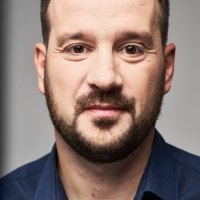
A blog of the Kennan Institute
BY VIKTOR ANDRUSIV
In a recent publication in the Washington Post, the author implied that the Look for Your Own (Ishchi svoikh) project—a public database with the names of Russian soldiers killed or captured in the Russian-Ukrainian war—may violate provisions of the Geneva Conventions. As an author and manager of this project, I would like to clarify its goals, origin, and challenges.
From the very beginning, the Look for Your Own project fulfilled an exclusively humanitarian function. On February 27, we in the Ministry of Internal Affairs tried to contact Russian commanders to exchange captives and transfer the bodies of fallen soldiers. We were shocked to learn they did not feel they needed their POWs back, as they hoped to complete their operation in a few days. However, as the days passed, the number of captives grew geometrically. An additional factor in this situation was that the Russian soldiers were completely deprived of mobile phones and could not inform their relatives about their situation. Also, a significant number of them had their pages on social media deleted. Under these circumstances, we decided to publish information about Russian POWs and the fallen soldiers we knew about. Since the names of many of the fallen soldiers were not known, after some debate, we decided to publish photos and video materials from which they could perhaps be recognized by their relatives.
We had launched a website and a channel on Telegram, but Roskomnadzor, Russia’s federal agency with oversight of IT and mass communications, blocked the website the very next day, so only a Telegram channel remained. As of today, the channel has 700,000 subscribers, 90 percent of them from Russia. We have received more than 12,000 requests from Russian families since the channel became operational and have provided information on 217 POWs and fallen troops to their relatives. Also, we have contacted other relatives whom we were able to identify through social media.
Most of the family members we have been in contact with were desperate. They had not been able to contact their sons and husbands for a long time, and the Russian authorities did not provide them with any information. Most were just shocked by the captivity of their children. Nor could they even imagine that such large-scale hostilities had been launched against Ukraine.
We are committed to fulfilling the Geneva Conventions and have instructed all units to treat all prisoners with respect. The general commander and the minister of internal affairs have adopted instructions based on the Geneva Conventions for all soldiers and policemen. We will monitor adherence to these instructions on a permanent basis. However, it is also true that the intensity of combat does not allow us to implement a perfect policy with respect to POWs. With the continuous bombing and assaults, we cannot move captives behind the front lines. As a result, it is not always possible to obtain information and details about those who have been captured. The Look for Your Own project has done a lot of work finding videos and photos of the POWs on social networks, as most often even basic information about them is available only to those who captured them. As you can see, in most videos the prisoners of war give their names, explain how they got to Ukraine, and in a few words convey their attitude toward the war. Many of them are given an opportunity to contact their relatives.
Also, we receive operational information about captives from the Security Service of Ukraine, the Armed Forces, and the National Police, and compile these lists into a single database so that we can compare individual names with the requests we receive from Russian families. As soon as the intensity of the fighting decreases, all POWs will be escorted to places of detention, and we will update and correct information in the database.
Unfortunately, we do not expect that the Russian commanders will change their attitude and start caring about their captured or fallen troops. Our decision to create a public database may seem controversial, but it reflects the extraordinary circumstances of this war: the fact that the Russian army does not show any interest in its POWs and has essentially disowned them. That is why we felt it necessary to identify the POWs and the bodies in order help their families find them.
The opinions expressed in this article are those solely of the authors and do not reflect the views of the Kennan Institute.
Author


Kennan Institute
After more than 50 years as a vital part of the Wilson Center legacy, the Kennan Institute has become an independent think tank. You can find the current website for the Kennan Institute at kennaninstitute.org. Please look for future announcements about partnership activities between the Wilson Center and the Kennan Institute at Wilson Center Press Room. The Kennan Institute is the premier US center for advanced research on Eurasia and the oldest and largest regional program at the Woodrow Wilson International Center for Scholars. The Kennan Institute is committed to improving American understanding of Russia, Ukraine, Central Asia, the South Caucasus, and the surrounding region through research and exchange. Read more

Explore More in Focus Ukraine
Browse Focus Ukraine
Talking to the Dead to Heal the Living

Ukrainian Issue in Polish Elections


